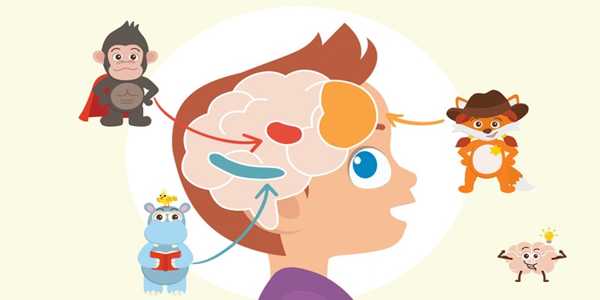Mother & baby
Toddler Tantrums Demystified - The Science Behind Their Emotions
As a parent, you’ve likely had to weather the fierce storm of a toddler tantrum. Such tantrums overwhelm and leave you dumbfounded.
As a parent, you’ve likely had to weather the fierce storm of a toddler tantrum. Such tantrums overwhelm and leave you dumbfounded. But once you can explain the behaviour through the lens of science, it will no longer be as overwhelming; neither will it be as hard to handle. You will understand why a tantrum took place and how to deal with it by looking into the neurological and developmental dynamics involved. You will, therefore, be better positioned to help your toddler forge emotional intelligence even as you remain calm, composed, and collected.
Understanding the Toddler Brain and Emotional Development

Brain Development and Emotional Regulation
Tantrums in toddlers are more related to the underdeveloped brain. During this period, the frontal lobe of the children’s brains is underdeveloped; this area controls emotions and makes decisions. This underdeveloped area makes it difficult for toddlers to keep their emotions under control, which causes them to burst out if something is not going according to their wishes.
Stress and Overstimulation
Toddlers absorb a lot of new life information and experiences, which can sometimes overwhelm them. Sometimes, this pent-up stress and anxiety are released when the toddler’s developing nervous system gets overworked.
Communication Problems
The inbuilt small vocabulary usually frustrates them further if they cannot communicate their needs or wants. Apart from this communication gap, tantrums develop if they fail to make others understand them explicitly.
Why Do Toddlers Have Tantrums? The Science Behind It

Knowing what triggers an emotional outburst can help parents handle the situation better. Here are some common triggers that can spark a tantrum in a child.
Overflow of Feelings
Toddlers have several kinds of strong feelings, yet they do not have the words to express them. When feelings such as frustration, anger, or disappointment overwhelm them, a tantrum may erupt. This overflow of feelings is normal since the child is still learning to process his emotions and find words to express them.
Frustrated Needs or Wants
Added to this, a meltdown might ensue when a child is not allowed to have their way- for instance, not getting a specific toy or not getting a particular snack. This happens simply because toddlers can’t understand the art of delayed gratification or see the big picture.
Fatigue and Hunger
When children are physically uncomfortable, this can often be equated with behavioural problems. A tired or hungry child is much more prone to lower stress tolerance, which can hasten tantrums. Try sticking to regular patterns of sleep and meals as much as possible.
Overstimulation or Changes in Routine
Young children prefer predictability, and new sights, among other things, can easily overwhelm them. Transitions from one activity to another, changes in routine, or unexpected events can raise anxiety levels and result in outbursts as they struggle to adapt.
When to Seek Help? Recognizing Problematic Tantrums
Even though tantrums are a normal phase of a child’s development, sometimes these can indicate problems. Parents need to understand when tantrums call for professional help.
Frequency and Intensity
Keep a note of the frequency and intensity of tantrums. Tantrums become a concern if your child has several in a day or if they are incredibly violent. Long-duration tantrums of more than 25 minutes are deemed abnormal.
Age-Inappropriate Behavior
As children grow older, their ability to control their emotions improves. If your child continues to throw frequent tantrums beyond the age of 5, you might want to discuss this with a paediatrician or child psychologist.
Interference with Daily Life
Suppose the tantrums start interfering with the family’s daily functioning, for instance. If the child doesn’t go to school or cannot engage in social and family activities because of tantrums, the tantrums need professional intervention.
Physical Aggression
While physical outbursts during tantrums are somewhat anticipated in a child, too much aggression towards people or self-harm behaviours should be of grave concern that needs to be addressed.
Underlying Problems
The presence of tantrums can sometimes hide other underlying problems that may include anxiety, sensory processing issues, and communication problems. Do not hesitate to seek help from a healthcare provider if you think your child’s tantrum could be due to these.
How to Help Your Toddler Develop Emotional Regulation Skills?

Create a Supportive Environment
Developing emotional regulation skills starts with a nurturing atmosphere. Establish a consistent routine that provides structure and predictability for your toddler. This stability helps them feel secure and better equipped to handle emotional challenges. Make your home a safe space where your child can freely express their feelings without fear of judgment or punishment.
Model Healthy Emotional Expression
Children learn by example, so demonstrate appropriate ways to manage emotions. When you’re frustrated, verbalize your feelings and show how you cope constructively. Say things like, “I’m feeling upset, so I’m going to take a few deep breaths to calm down.” This helps your toddler understand that all emotions are valid and teaches them positive strategies for self-regulation.
Practice Emotion Labeling
Name the feelings and help your toddler build an emotional vocabulary. When your child feels a particular emotion, label it for him: “You look angry because your tower fell.” This helps him learn to identify feelings and put words to them, an essential first step in learning how to regulate their intensity.
Teach Coping Techniques
Point out some simple things your toddler might do when he is upset. Deep breathing, counting to ten, or hugging a favourite stuffed animal might work. Role-play these with your child during quiet time so he knows what to do during those stormy moments.
The Way Ahead: Coping with Toddler Tantrums
Understanding the science behind tantrums equips you with the valuable tools to work through such times. You’ll recognize that this is a maturational phase in which your child needs empathy. It’s normal for children of this age to have tantrums - a teachable moment. Your calm and consistent response will help your child gradually learn to regulate their emotions. You will progressively reduce tantrums and their intensity as you practice many of the strategies that were discussed.
How do you like this article?





 Latest Posts
Latest Posts





